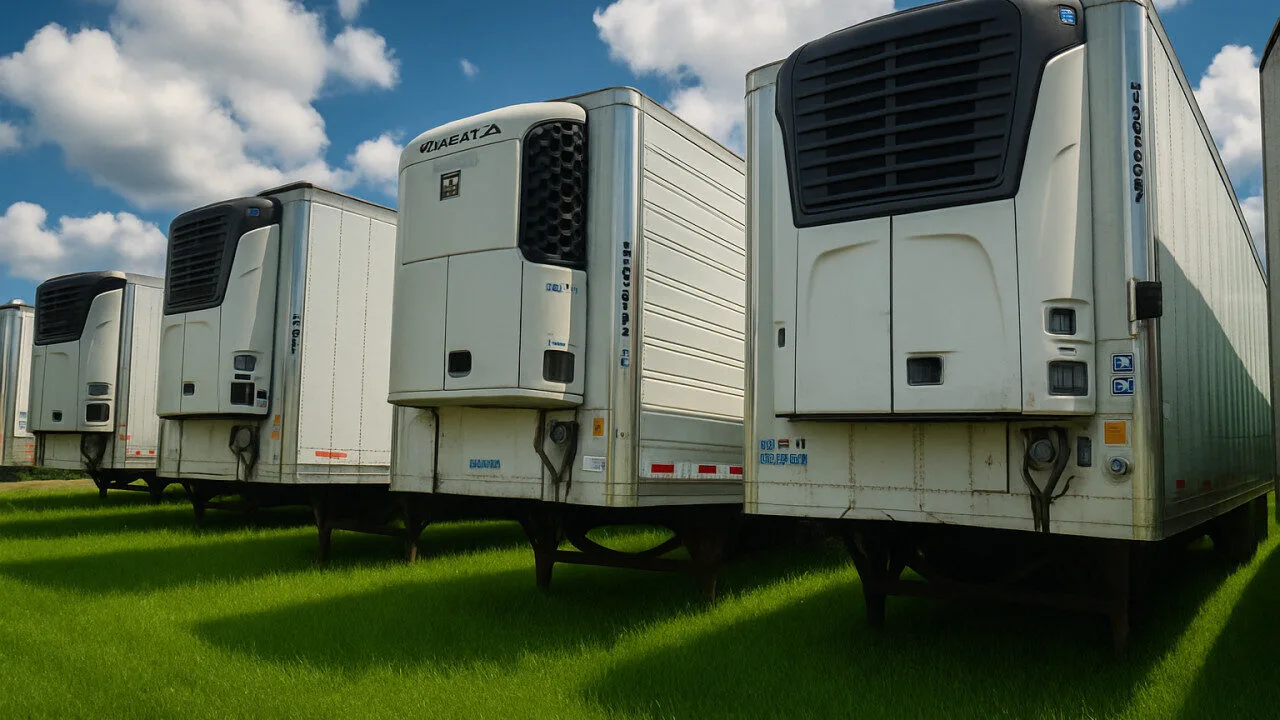What Fleet Managers Should Know Before Small Issues Become Big Downtime
In many fleets, trailers don’t get the same attention as power units—but they should. Trailers are just as critical to uptime, safety, and compliance, and ignoring them can lead to roadside violations, freight delays, or worse—load loss.
At Matthews Motors, we see these five trailer issues on a regular basis. Some start small, but all of them can signal deeper problems. Whether you manage five trailers or fifty, these are warning signs worth paying attention to.
1. Flickering or Non-Working Lights
Why it matters: Lighting issues are among the most common DOT violations—and one of the easiest to catch during roadside inspections.
What to look for:
- Inconsistent turn signals or marker lights
- Wires with visible corrosion or fraying
- Plug-in ports that feel loose or damaged
- Water inside junction boxes
The risk: Poor visibility at night, liability during braking, and increased attention from inspectors.
2. Uneven Brake Wear or Air Loss
Why it matters: Trailer brakes wear differently than tractor brakes—and if they’re not adjusted or inspected regularly, they can fail without much warning.
What to look for:
- Grinding or squealing during braking
- The trailer pulling left or right
- Inconsistent air pressure or slow recovery time
- Misaligned slack adjusters
The risk: Brake chamber blowouts, reduced stopping power, or violations during a DOT brake check.
3. Damaged Doors, Seals, or Hinges
Why it matters: Roll-up and swing doors take a beating—especially in high-frequency load/unload operations. A broken door isn’t just a nuisance—it can lead to cargo loss or cold chain failure.
What to look for:
- Bent or cracked door frames
- Torn or missing seals
- Stiff or malfunctioning latches and locks
- Doors that don’t align or close properly
The risk: Product loss, temperature violations, theft risk, and out-of-service orders during inspections.
4. Suspension and Ride Problems
Why it matters: A bad ride doesn’t just affect the trailer—it impacts cargo stability and shortens the life of the entire rig.
What to look for:
- Noticeable trailer bounce or sway
- Uneven tire wear
- Drooping ride height or sagging suspension
- Cracks or fatigue around axle hangers
The risk: Poor load handling, more frequent tire replacements, and accelerated frame fatigue.
5. Cracks, Corrosion, or Loose Crossmembers
Why it matters: Structural integrity is a major part of FMCSA compliance—and easily missed if visual inspections aren’t routine.
What to look for:
- Rust streaks, holes, or bubbling paint
- Visible cracks along the frame or weld seams
- Crossmembers that rattle or shift
- Loose panels or visibly twisted metal
The risk: DOT out-of-service orders, compromised load safety, and long-term structural damage.
Keep Small Problems from Becoming Big Ones
These issues show up in fleets of all sizes—and many are preventable with consistent inspections and a strong trailer maintenance plan.
Fleet managers are increasingly bundling trailer PMs into their routine service programs, and for good reason:
- Catch issues before DOT checks do
- Avoid emergency repairs and lost loads
- Track repair history per VIN or trailer ID
If you’re starting to see the early signs of trailer trouble, don’t wait for a breakdown to make a move.
Book a Trailer Inspection or Repair: We serve Augusta, GA and the surrounding areas within a 75 mile radius. Call: (706) 722-3997 or email service@matthewsmotors.org



